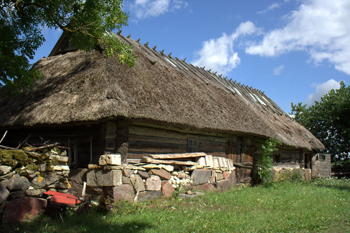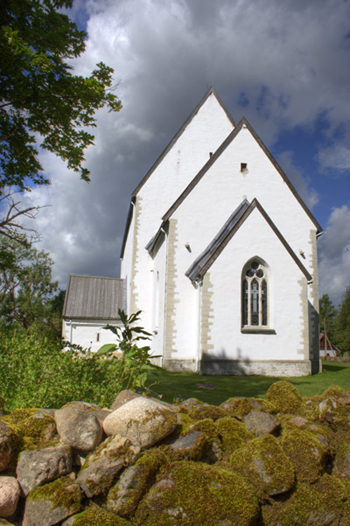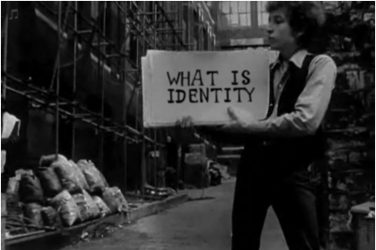Some places stay in our memories leaving an untouchable mark for a lifetime. Friederike Wildberg tells us about an unforgettable small island in Estonia where she used to spend her childhood holidays with her family.

Globalisation hadn’t arrived yet the first time we got to Muhumaa, or Muhu, as we called it. Muhumaa is part of the Estonian archipelago and just off the Estonian western shore. The funny thing is, no one seems to associate Estonia with an “island vacation”, even though the archipelago consists of over 500 islands. Only about 2000 people live on the third-largest island Muhumaa though, leaving enough room for aromatic pine forests, vast green pastures, a wild untouched shore line and lots of animals, especially horses. These could be seen ploughing the fields or dragging carts. In fact, it seemed like there were more horse-drawn carriages on Muhumaa than cars! This is largely due to Tihuse, a large local horse farm, where “forest-grandfather” Martin, as he called himself, used to breed and feed over 200 Estonian horses. Each morning we spent at the horse farm we would throw a handful of seeds into the wind with Martin to propitiate the nature spirits of the island. He would also show us magic rocks in the forest that, as he explained, possessed “a special powerful energy”. While I would have laughed at these rituals and stories back home in the city, here they seemed appropriate and even indispensable. “Tere tulemast!“ The weathered wooden welcome sign greets any visitor that steps off the small rusty ferry and onto the island of Muhumaa. It seems to me that I’ve seen it countless times: whenever the bustle of the city grew unbearable, my family got us all into the car and we took the ferry across the Baltic Sea to the small Estonian island. In an instant we would be transported back into what I like to think of as the “old” Europe, where it was not presupposed that everybody spoke English, where internet access was inexistent and adequate mobile reception a question of pure luck.
Muhumaa consists mostly of “no man’s land”, meaning that you have free access to all forests and fields on the island
Being addicted to horseback-riding, staying at Tihuse was heaven for me. On horseback, I could roam the fields freely, as Muhumaa consists mostly of “no man’s land”, meaning that you have free access to all forests and fields on the island. We would pass through deserted villages on horseback or ride along the stony shore without seeing a sign of modern civilisation for hours. Some of the historic colorful villages were up to 500 years old and still inhabited – they seemed to ooze memories and stories. Martin was something of a celebrity on the island, so people were happy when we passed through and stopped for a chat. Language barriers prevented me from participating, but even through their gestures the locals exuded the calmness and quiet that dominates the island life – everyone seemed to be less hurried and more at peace with the world around them than I had ever experienced back home. Not being Estonian myself, I would never dare to assume that I understood the complicated dynamics of their close-knit rural community, but I know that I enjoyed the way of life in their peaceful remoteness, even if it was just for days or weeks at a time.

A safe place
Quiet and remoteness are also granted to anyone who wanders so far as to reach the eclectic manor “Pädaste“ with its set of grand stone mansions on the southern shore of the island. There I have spent many hours in front of the great fireplace, browsing the library consisting of a myriad of books left behind by long gone travellers. For me, these travel libraries always have something special – books that are left behind but not forgotten, with every new visitor reviving them. During winter and fall, when cold rains hit Muhumaa, Pädaste was a safe haven for my family and me, offering an escape from the city even during the less friendly seasons. Even fewer visitors would find their way to Muhumaa during these months and sometimes it seemed we had the island – or at least Pädaste – to ourselves. I have to admit though that as a young teenager I missed the bustling city-life during these wintry stays on an island where time seemed to stand still. I missed the vibrancy of the city and started to resent the quiet that radiated from the old stone walls. In hindsight of course one tends to idealise places and experiences – and maybe I have done so with Muhumaa.
But I know that as a child, I enjoyed coming to Muhumaa because it meant days or weeks of more or less unsupervised adventures outside, horse riding and grilling delicious fresh fish in the hand-crafted stone ovens. Now that I’m older my visits are few and far between, but the last time I stepped off the ferry the familiar childhood anticipation returned. It made me realise that it is not necessary to go far away to immerse yourself completely in a different world. It taught me that unexpected places are often just beyond your doorstep. It is always possible to experience something new, even in a place you already seem to know, because although that place might not have changed much – you have. After Estonia joined the EU in 2004 tourism increased and with it the urge to accommodate the modern traveler adequately. However, whenever visiting Muhumaa, I am comforted by the knowledge that some hidden gems on this continent have not succumbed to the temptation of standardisation and will always stay unique, saving us from the fate of traveling through a uniform and indistinguishable Europe.





